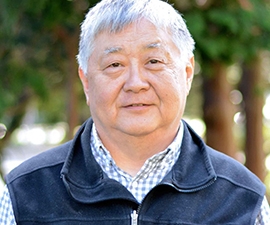

Research Bio
Mark Tanouye is a professor in the Department of Environmental Science, Policy and Management, Division of Insect Biology. His research lab studies Drosophila mutants that have behavioral abnormalities. By determining the genetic and molecular bases of these abnormalities, they are able to unravel new and basic features of nervous system structure and function.
Current Projects
Their approach is to use a combination of methodologies including classical and molecular genetics, behavior, electrophysiology, and neuroanatomy. They are especially interested in developing a Drosophila model system for examining human neuropathologies. Recently, they have been examining seizures, a serious problem in many neuropathologies. They are a major symptom associated with fever, mechanical trauma, electroconvulsive shock, drugs, alcohol, tumors and epilepsy. The long-term objectives of their research are to examine basic nervous system features underlying seizure-sensitivity and to discover novel treatments.
To approach this problem, they have a) invented methods for quantifying seizure-susceptibility in normal and mutant Drosophila; b) identified seizure-sensitive mutants that are especially prone to seizures compared with normal flies; c) identified seizure-resistant mutants that are especially insensitive to seizure-induction; and d) identified seizure-suppressor mutations and seizure-enhancer mutations that allow further genetic manipulation of seizure phenotypes and form the basis for developing promising anticonvulsant therapies. The genetic and molecular biology capabilities in Drosophila that have resolved fundamentally important issues in biology also provide an attractive system for developing new therapies to treat human pathobiology.
Research Expertise and Interest
genetics, neuroanatomy, electrophysiology, mechanisms of nervous system structure and function, drosophila mutants
